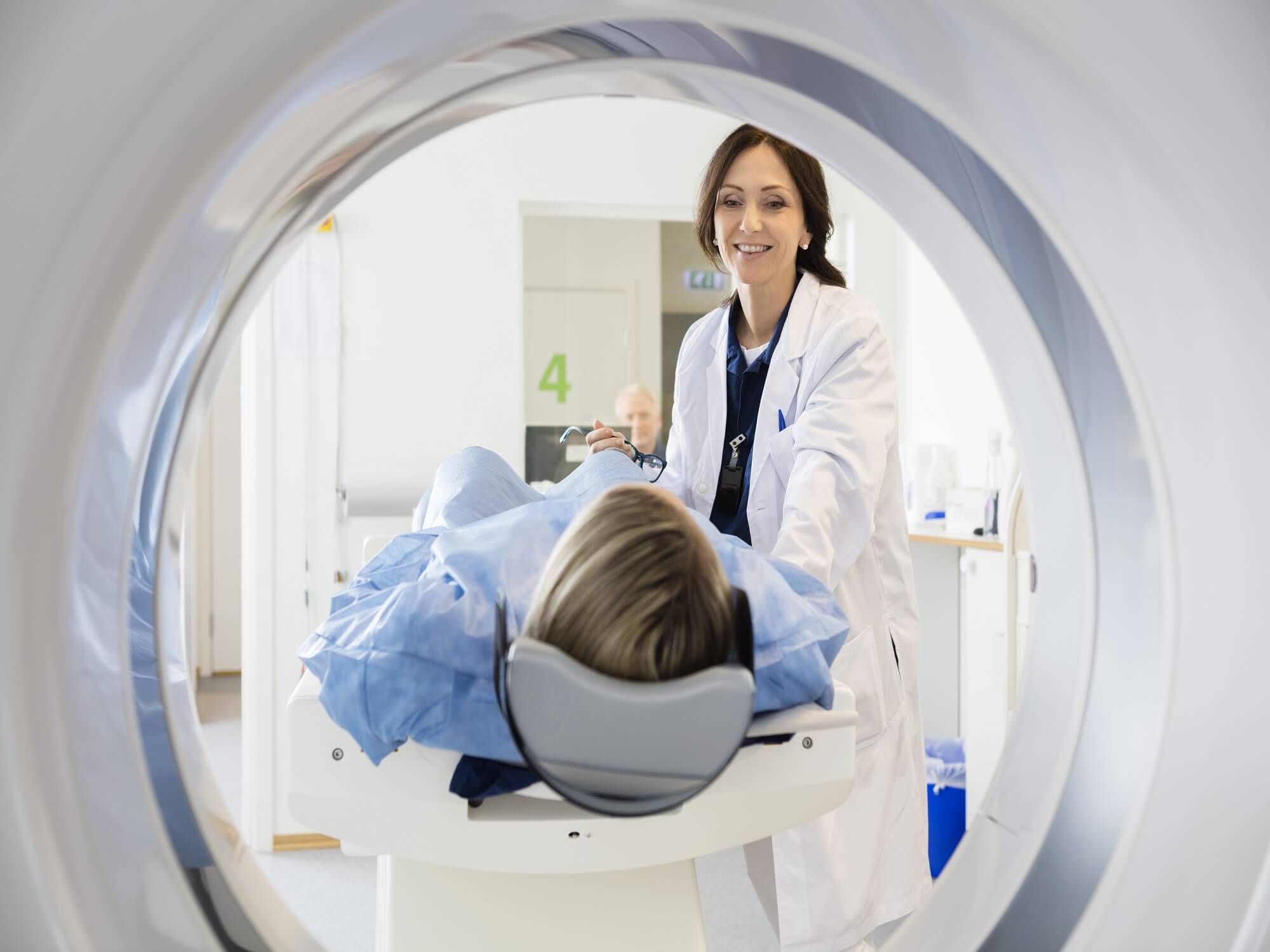Abdomen and Pelvis

-
CT scanning—sometimes called Computed Tomography or CAT scanning—is a noninvasive medical test that helps physicians diagnose and treat medical conditions.
CT scanning combines special x-ray equipment with sophisticated computers to produce multiple images or pictures of the inside of the body. These cross-sectional images of the area being studied can then be examined on a computer monitor, printed or transferred to a CD.
CT scans of internal organs, bones, soft tissue and blood vessels provide greater clarity and reveal more details than regular x-ray exams
-
Why should I do it ?
-
This procedure is typically used to help diagnose the cause of abdominal or pelvic pain and diseases of the internal organs, small bowel and colon, such as:
- Infections such as appendicitis, pyelonephritis or infected fluid collections, also known as abscesses.
- Inflammatory bowel disease such as ulcerative colitis or Crohn's disease, pancreatitis or liver cirrhosis.
- Cancers of the liver, kidneys, pancreas, ovaries and bladder as well as lymphoma.
- kidney and bladder stones.
- Abdominal aortic aneurysms (AAA), injuries to abdominal organs such as the spleen, liver, kidneys or other internal organs in cases of trauma.
-
CT scanning of the abdomen/pelvis is also performed to:
- Guide biopsies and other procedures such as abscess drainages and minimally invasive tumor treatments.
- Plan for and assess the results of surgery, such as organ transplants.
- Stage, plan and properly administer radiation treatments for tumors as well as monitor response to chemotherapy.
-
Any preparations needed?
- You should wear comfortable, loose-fitting clothing to your exam.
- Metal objects, including jewelry, eyeglasses, dentures and hairpins should be left at home or removed prior to your exam. You may also be asked to remove hearing aids and removable dental work. Women will be asked to remove bras containing metal underwire. You may be asked to remove any piercings, if possible.
- You should inform the technologist if you have a pacemaker.
- You may be asked not to eat or drink anything for a few hours beforehand, especially if a contrast material will be used in your exam.
- You should inform your physician of all medications you are taking and if you have any allergies.
- Inform your doctor of any recent illnesses or other medical conditions and whether you have a history of heart disease, asthma, diabetes, and kidney disease or thyroid problems.
- Women should always inform their physician and the CT technologist if there is any possibility that they may be pregnant.
- Your diet will be restricted to clear liquids the day before the examination
- Be sure to inform your physician if you have heart, liver or kidney disease to be certain that the bowel prep will be safe.
-
This procedure is typically used to help diagnose the cause of abdominal or pelvic pain and diseases of the internal organs, small bowel and colon, such as: